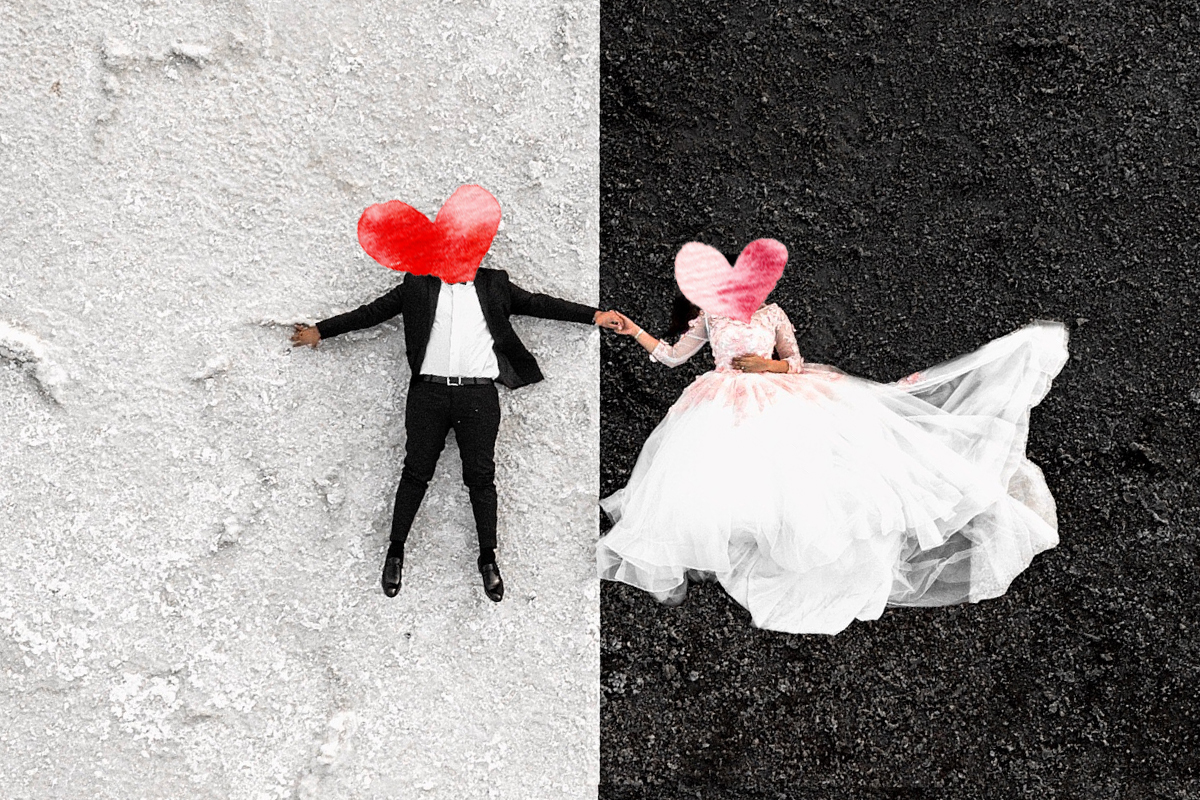There is something beautiful about the union of two souls from different countries, cultures, religions, and race: growth. In every ecosystem around the world, the most diverse habitats are the healthiest, growing instead of dying. It’s one of the ways that God uses science to wield optimal creation, and the same applies to humanity.
When I met my husband, a Punjabi immigrant from the Delhi area, I was floored when I realized how similar our cultures — and stories — were. I was also shocked at how some members of my community, mainly white Ashkenazi Jews, reacted to my marrying an Indian man. While reminding me full well that I’m a convert to Judaism, albeit being a patrilineal Sephardic Jew, these same people told me that I should marry “my own kind” and went on to detail how controlling Indian men are.
But I saw the hypocrisy from the beginning, knowing full well that racism, even against other Jews, is an existential problem in the Jewish community. I fearlessly stood up for the man that would become my future husband, and even though our partnership has been challenging, forcing us to both grow like a coral reef fighting for survival, I don’t regret marrying him.
Instead, marrying him has only brought me closer to myself and my Jewish heritage.
Food is a big part of any culture — especially for Indians and Jews. Imagine my surprise when I discovered a recipe for “Eggplant Appetizer” in The Sephardic Cooks cookbook, sold by Or VeShalom temple in Georgia, which is almost identical to Punjabi eggplant bharta. My husband taught me how to make eggplant bharta early in our relationship, and to know that this recipe was also something that Sephardic people make gave me a sense of pride and belonging.
Even my husband had a similar moment when I made bourekas for Thanksgiving. Bourekas are more than just food to me, they are also symbolic of my reconnection to my Sephardic heritage and family. It was my long-lost cousins from Atlanta who taught me how to make them in my mid 20s. My husband couldn’t believe his eyes, but these baked dough pastries were nearly identical to what his mom made growing up — the only difference was that her turnovers were desserts. He was so excited that he FaceTimed everyone in his immediate family to show them what I was doing. For him, it was also a connection to his own heritage and childhood.
Hindu and Jewish holidays, while vastly different, do have some of the same customs, especially when it comes to lights and fasting. This past year, my husband and I did a flip-flop of celebrations. We didn’t decorate or hang any lights for Diwali, but I fasted for Karwa Chauth, ending up with my face to the moon, looking through a strainer and pouring a glass of water onto the ground, all for my husband’s longevity — the story of Queen Veervati serving as motivation. My husband didn’t fast for any Jewish holidays, but for Hanukkah he lit the menorah after I recited the Hebrew prayer and told him the story of the Maccabees.
The influence of the British forces on our native lands, and expulsions, is also a glaring similarity, and not one that I had known until meeting my husband. Even though his family currently resides in the Delhi area, they had once lived in the Punjab territory of what is now Pakistan. In 1947, when the partition happened between Pakistan and India, my husband’s family hired a driver and with some luck escaped unharmed. The women who rode the trains were not so lucky, my husband informed me, as they had been raped en masse while trying to escape. It was a terrible history to learn, and I couldn’t help but draw comparisons between our people, which in turn made me feel all the more closer to my husband because of this shared ancestral trauma.
When my husband first came to America for grad school, he told me of a scary experience that he had days after starting his first classes. While walking to campus, someone screamed out of a car window to “go back where you came from.” This ignorance not only makes me angry as his wife, but also as a descendant of immigrants. My father, for example, had faced racism although being a white-passing, first generation American Sephardic Jew. When he was in his late 20s, he had actually been evicted from an apartment after three days, once the landlord saw him, for being too dark. His skin color and “look” also affected his relationships throughout the years; a woman once broke up with him because her father didn’t like the color of his skin.
Which brings me back to what some of the white Ashkenazi Jews in my community said about my husband. If my husband is too brown, too Indian, too Hindu, what about me? What about my dad? Are we too Sephardic? Too dark? Too different?
And what about those who are both Indian and Jewish, like my future children? Where do they fit into this box that the world continues to try and trap us?
I know the truth: By being with my husband and knowing my family’s history, I am sitting on a throne of strength. Any negative thing that comes my way? I’ll just turn it into writing. Hopefully one day, people in our communities will read enough stories like mine to learn that the perfect partner does not need to come from the same background as you to share a beautiful life of shared values and love.



